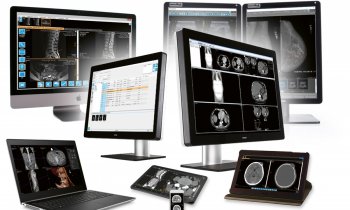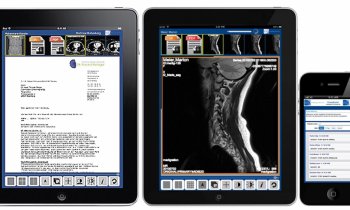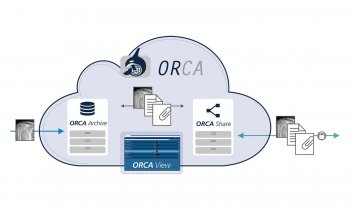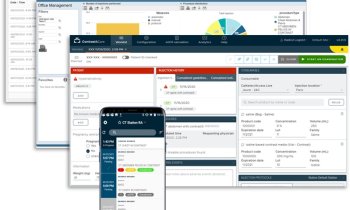Hitachi’s all-in-one data management system
A mix of hardware, software and services, the Hitachi Clinical Repository (HCR) system draws together all patient data from many information sources, thus providing quicker and better use of records. At Hitachi Data Systems, Mark Clark explained: ‘HCR basically provides the infrastructure to put together both clinical and non-clinical data into a centralised, non-proprietary-repository to provide an overall and longitudinal view of the patient information.’


Today’s problem is not lack of data but the lack of being able to use it meaningfully, i.e. bringing everything together and, more so, using the meta data that provides information about certain items such as size and dimension, modality used, publishing date, author etc. Such metadata are usually stored in a static, proprietary format that is inaccessible to other applications -- and they therefore remain unutilised. Thus, creating a central, integrated metadata repository of patient data is integral to optimising the use of patient data. ‘HCR is adding patient metadata to image and non-image data to restore the long-term value to this most critical class of data. It displays all relevant data in a single, longitudinal record – regardless of in which information system the data resides,’ Mark Clark explained.
The system enables the user to start a query through all the available data in an easy, accessible format and access information quickly, despite the volume stored. Additionally, streaming makes the data distribution very efficient.
Hitachi Data Systems provides a complete data transformation service that captures appropriate data from the many information sources within an enterprise and then indexes that data along with its file system, application and customer metadata. The data is then made available to external sources through the platform’s API architecture.
Business rules, privacy and security requirements, quality and audit assessments, governance and workflow processes can all be applied against the indexed data for further improvements to patient care.
Hitachi points out that additional HCR benefits are many, including:
•Indexing and sophisticated metadata analysis of more than 50 different document extensions and 400 multi-purpose internet mail extensions (MIME) types, their content and possible different levels of information, provides unprecedented interoperability.
•A significant reduction in waste, operational and maintenance costs, whilst improving access to data and increasing efficiency.
•Metadata indexing improves the organisation, accessibility, discoverability and long-term value of data.
•Physical adoption and utilisation of a single longitudinal patient record through EHR and portal solutions enables enterprise adoption and utilisation of EHR solutions.
‘All data can be stored in the PACS, or directly from the modality into the repository,’ Mark Clark pointed out, adding: ‘It also can, of course, first be stored in the PACS for a certain time and then removed to HCR for long-term storage. This depends of a hospital’s individual need.’
All in all, this all-in-one solution aims to improve the physician’s access to patient information, ultimately to improve clinical decisions.
19.04.2011











